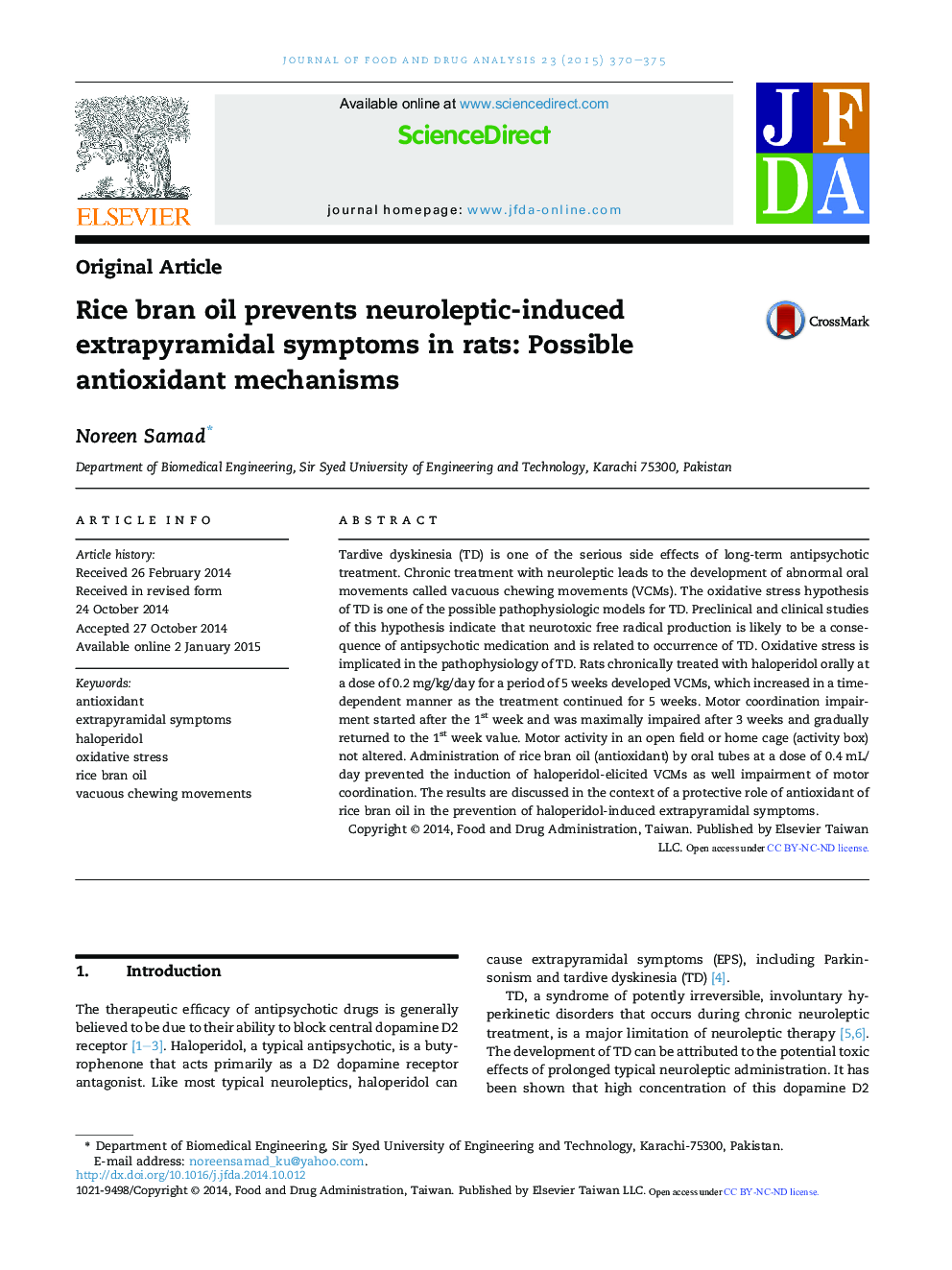| کد مقاله | کد نشریه | سال انتشار | مقاله انگلیسی | نسخه تمام متن |
|---|---|---|---|---|
| 2507435 | 1117488 | 2015 | 6 صفحه PDF | دانلود رایگان |
Tardive dyskinesia (TD) is one of the serious side effects of long-term antipsychotic treatment. Chronic treatment with neuroleptic leads to the development of abnormal oral movements called vacuous chewing movements (VCMs). The oxidative stress hypothesis of TD is one of the possible pathophysiologic models for TD. Preclinical and clinical studies of this hypothesis indicate that neurotoxic free radical production is likely to be a consequence of antipsychotic medication and is related to occurrence of TD. Oxidative stress is implicated in the pathophysiology of TD. Rats chronically treated with haloperidol orally at a dose of 0.2 mg/kg/day for a period of 5 weeks developed VCMs, which increased in a time-dependent manner as the treatment continued for 5 weeks. Motor coordination impairment started after the 1st week and was maximally impaired after 3 weeks and gradually returned to the 1st week value. Motor activity in an open field or home cage (activity box) not altered. Administration of rice bran oil (antioxidant) by oral tubes at a dose of 0.4 mL/day prevented the induction of haloperidol-elicited VCMs as well impairment of motor coordination. The results are discussed in the context of a protective role of antioxidant of rice bran oil in the prevention of haloperidol-induced extrapyramidal symptoms.
Journal: Journal of Food and Drug Analysis - Volume 23, Issue 3, September 2015, Pages 370–375
